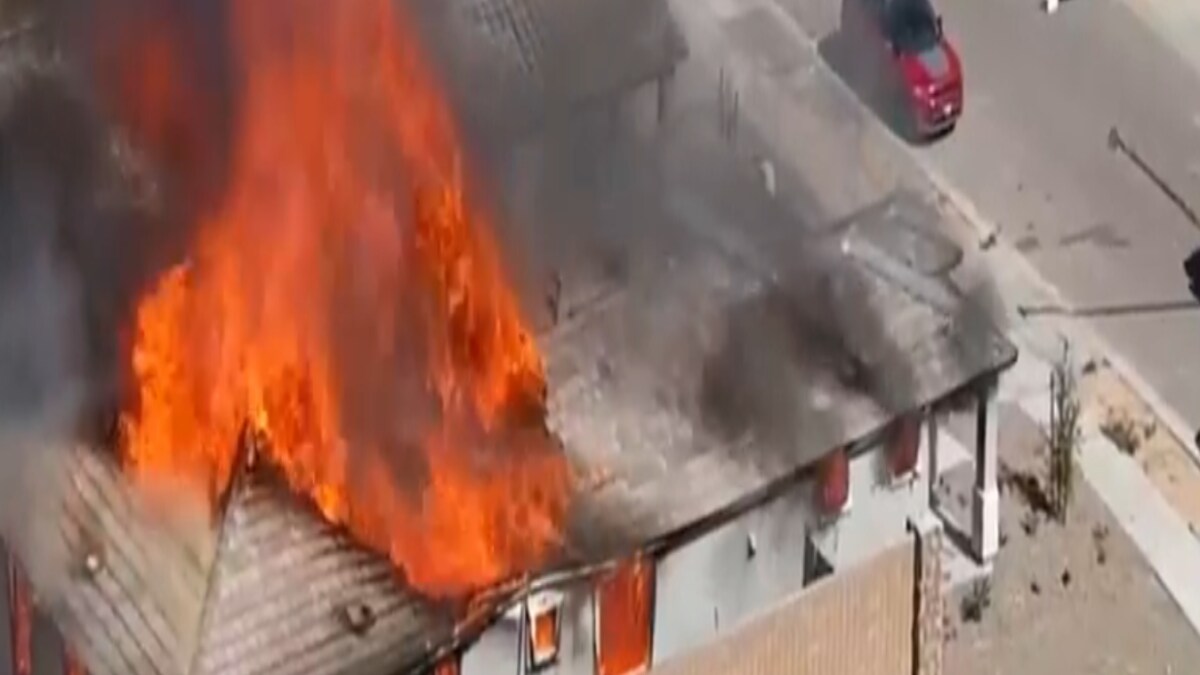Israel closed its main crossing point for delivering badly needed humanitarian aid for Gaza on Sunday after Hamas terrorists attacked it, while the defence minister claimed Hamas wasn’t serious about a ceasefire deal and warned of “a powerful operation in the very near future in Rafah and other places across all of Gaza”.
Both struck blows to ongoing ceasefire efforts in Cairo mediated by Egypt and Qatar after reported signs of progress. Israel hasn’t sent a delegation, unlike Hamas, and Defence Minister Yoav Gallant said that “we see signs that Hamas does not intend to go to any agreement”.
Another threat to the talks came as Israel ordered the local offices of Qatar’s Al Jazeera satellite news network to close, accusing it of broadcasting anti-Israel incitement. The ban did not appear to affect the channel’s operations in Gaza.
Prime Minister Benjamin Netanyahu, under pressure from hardliners in his government, continued to lower expectations for a ceasefire deal, calling the Hamas demands “extreme”, including the withdrawal of Israel forces from Gaza and an end to the war. That would equal surrender after the Hamas attack on October 7 last year that triggered the fighting, Netanyahu said.
Hamas didn’t immediately respond to Gallant’s comments. Hamas leader Ismail Haniyeh, in a statement earlier, said the group was serious and positive about the negotiations and stopping Israeli aggression in Gaza is the main priority.
But Israel’s government again vowed to press on with a military operation in Rafah, the southernmost Gaza city on the border with Egypt where more than half of Gaza’s 2.3 million residents now seek shelter from Israeli attacks. Rafah is a key entry point for aid.
Kerem Shalom, now closed, is another. The Israeli military reported 10 projectiles were launched at the crossing in southern Israel and said its fighter jets later struck the source. Hamas said it had been targeting Israeli soldiers in the area. Israel’s Channel 12 TV channel said 10 people were wounded, three seriously. It was unclear how long the crossing would be closed.
The attack came shortly after the head of the UN World Food Programme asserted “full-blown famine” in devastated northern Gaza, one of the most prominent warnings yet of the toll of restrictions on food and other aid entering the territory. The comments were not a formal famine declaration.
Gaza’s vast humanitarian needs put further pressure on the cease-fire talks. The proposal that Egyptian mediators had put to Hamas sets out a three-stage process that would bring an immediate, six-week ceasefire and partial release of Israeli hostages taken in the October 7 attack, and would include some sort of Israeli pullout. The initial stage would last for 40 days. Hamas would start by releasing female civilian hostages in exchange for Palestinian prisoners held by Israel.
Netanyahu claimed that Israel has shown willingness to make concessions but said it “will continue fighting until all of its objectives are achieved”. That includes the stated aim of crushing Hamas. Israel says it must target Rafah to strike remaining fighters there despite warnings from the US and others about the danger to civilians.
In later remarks for Israel’s annual Holocaust Memorial Day, Netanyahu added, “We will defend ourselves in every way. We will overcome our enemies and we will ensure our security - in the Gaza Strip, on the Lebanese border, everywhere.”
The Hamas cross-border attack on October 7 killed some 1,200 people and took 250 others hostage. Israel says terrorists still hold around 100 hostages and the remains of more than 30 others. Netanyahu is under growing pressure from some hostages’ families to make a deal to end the war and get hostages freed.
Israeli’s air and ground offensive has killed over 34,500 people, according to Palestinian health officials, who don’t differentiate between civilians and combatants but say women and children make up a majority of those killed.
Israel blames Hamas for civilian deaths, accusing it of embedding in residential and public areas. The Israeli military says it has killed 13,000 terrorists, without providing evidence to back up the claim.
Published By:
Prateek Chakraborty
Published On:
May 5, 2024
Tune In

 1 week ago
1 week ago

















